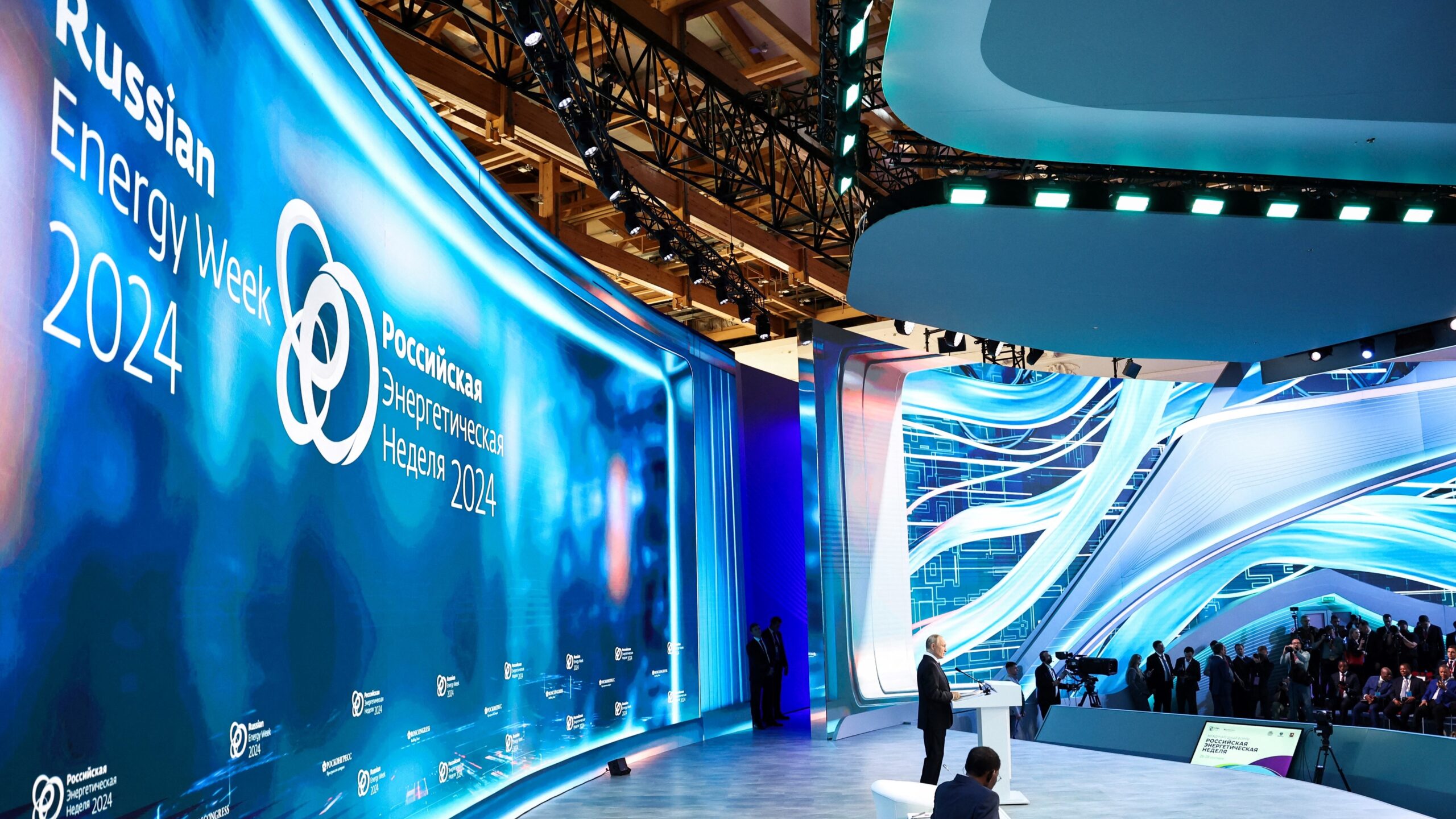On 9 October the European Parliament was supposed to debate the priorities of the Hungarian Presidency of the EU Council, presented by Hungarian Prime Minister Viktor Orbán. While the Hungarian leader refrained from ideological or partisan comments during his presentation, the debate soon became a clash on party political matters. The President of the European People’s Party Manfred Weber openly endorsed the newly anointed leader of the Hungarian opposition, Péter Magyar. The EPP then went as far as posting a meme of Orbán with the caption ‘time to go’, an unprecedented move in EP history.
Since the European elite was unwilling to honour the priorities of the Hungarian Presidency with a proper debate, we feel obliged to recount some of the factual points made by the Hungarian Prime Minister during the plenary session.
Responding to the accusation that Hungary continues to maintains close economic relations with Russia despite the war, Prime Minister Orbán highlighted that contrary to many European countries, Hungary’s trade relations with Russia are fully transparent. Orbán argued that many EU countries are engaging in covert business dealings with Moscow through intermediaries in Central Asia. Since the start of the war, Prime Minister Orbán said, the Union has spent 8,5 billion USD more on oil refined in Türkiye and India than before, pointing out the obvious: that the oil refined in these third countries originates in Russia. Overall, the West bought 44 per cent more Russian oil than in the previous year, the Hungarian Prime Minister underscored, calling the EU’s covert trade hypocritical.
‘Albeit temporarily halting its Russian gas imports in 2023, in 2024 Czechia spent 440 million EUR on gas bought from Gazprom’
A recent study by the Center For the Study of Democracy and the Centre for Research on Energy and Clean Air proves Orbán’s points. According to the study that focuses on the Czech Republic and a multinational company, Orlen Unipetrol, since 24 February 2022 Czechia has spent over 7 billion EUR on Russian oil and gas. That is, more than five times the aid (1.29 billion EUR) it has provided to Ukraine. In 2023 the country’ reliance on Russian oil grew to 60 per cent; this year it has decreased top pre-invasion levels, but nevertheless remains around 50 per cent. Czechia’s State Material Reserves Administration holds 15.2 million barrels of stocks (49 per cent of which is crude oil and 51 per cent is refined products) from which the crude stock is completely Russian.
Czechia’s willingness to buy Russian energy not only applies to oil, but to gas, too. Albeit temporarily halting its Russian gas imports in 2023, in 2024 Czechia spent 440 million EUR on gas bought from Gazprom. In the first half of 2022 48 per cent of the country’s gas imports were from Russia, which dropped to about 40 per cent in 2023, but recovered approximately to the 2022 levels in 2024. It is important to note that the reliance on Russian gas imports persists despite the fact that Czechia could import the needed amount both from Norway (via pipeline routes in Germany) as well as in the form of liquefied natural gas (through a terminal in the Netherlands which the country has reserved).
‘Orlen Unipetrol, a subsidiary of Orlen SA, majority-owned by the Polish state, also made a considerable profit from buying Russian oil’
While Czechia, a country that presents itself as an arch supporter of Ukraine, contributed 2.3 billion EUR in tax revenues to the Kremlin’s war effort, Orlen Unipetrol, a subsidiary of Orlen SA, majority-owned by the Polish state, also made a considerable profit from buying Russian oil. The study estimates Orlen’s surplus profit to be EUR 1.2 billion. Orlen Unipetrol, the sole processors of crude oil in Czechia, purchased 4.3 million tonnes of Russian crude oil in 2023, the highest volume in a decade. Unipetrol claimed similar reasons for its inability to disconnect from Russian energy sources as the Hungarian government—inadequate alternative pipeline capacity and the need for refinery modifications to be able to process other crudes. While acknowledging these difficulties, Orlen’s openness to buying and processing Russian crude is clearly motivated by profit incentives—in 2023 on average Russian crude was 25 per cent cheaper than that of Czechia’s second-largest supplier, Azerbaijan.
Orlen, on the other hand, did not allow their customers to benefit from the low prices. Household energy prices stayed high even when Czechia imported the highest volumes of the relatively cheap Russia crude. Orlen Unipetrol’s contract with Rosneft is for 5 million tonnes of crude per year until mid-2025, so the Polish state-owned Orlen’s financial gain from Russian energy is unlikely to go away anytime soon.
Proving the Hungarian Prime Minister’s point, the only difference between some European member states and Hungary is not that they refrain from purchasing Russian energy, but that they mask and downplay their purchases unlike Hungary. While Hungary is usually presented as a stooge of Moscow for its opposition to Brussels’ sanction policies, Czechia benefits no less than Budapest from the exemption granted to Russian crude oil imported through the southern branch of the Druzhba pipeline.
Whilst Hungary is presented as a country that undermines the EU’s attempts to decouple from Russian energy, Budapest, in reality, is actively seeking alternative ways to secure its energy supply. One of the forward-looking investments that can provide a safe energy alternative to multiple Central European countries is enabled by Hungary’s enhanced strategic partnership with Azerbaijan. The initiative aims to construct a high-voltage undersea power line as well as to transport renewable energy through the Black Sea to Hungary and other regional countries that in the long-term could prove to be a reasonable alternative to Russian energy.
Related articles:







